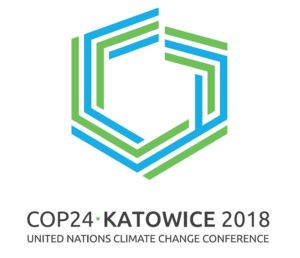Germany pledges €1.5b to Green Climate Fund
 The German Government has pledged to commit new funding of €1.5 billion to support the implementation of the Paris Agreement and global efforts at tackling climate change.
The German Government has pledged to commit new funding of €1.5 billion to support the implementation of the Paris Agreement and global efforts at tackling climate change.
Ms. Svenja Schulze, the Environment Minister, and Mr Gerd Muller, Development Minister, announced this at the ongoing 24th Conference of the Parties (COP 24) to the United Nations Framework Convention on Climate Change in Polish city of Katowice,
The Paris Agreement aims to strengthen global response to the threat of climate change by keeping global temperature rise well below 2 degrees Celsius.
It is additionally meant to increase the ability of countries to deal with the impacts of climate change, making finance flows consistent with low emissions and climate-resilient pathway.
To achieve these ambitious goals, appropriate mobilization and provision of financial resources, a new technology framework and enhanced capacity-building were to be put in place to support actions by developing and the most vulnerable countries, in line with their own national objectives, known as Nationally Determined Contributions (NDCs).
Many of the nations including Ghana, gathered for COP24, have designed their NDCs – the national effort to reduce emissions and adapt to the impacts of climate change, and these require funding for their implementation.
It is against this background that the German funding is important and refreshing – a big boost and critical addition to the Global Climate Funds, which currently has $7.3 billion at its disposal and already supporting 93 projects.
Due to scarce funding, commitments for new projects would no longer be possible from the middle of 2019 and that largely explains the recent decision to replenish the Green Climate Fund.
Germany happens to be the first country to have responded with its €1.5 billion pledge after it had earlier provided €750 million, making it the biggest donor, at the initial capitalisation, in 2014.
Mr Muller said “Germany is leading the way. We are doubling our contribution to the Green Climate fund and launching the Development and Climate Alliance, an initiative to encourage additional private investment in climate projects in developing countries and emerging economies”.
He added that climate action was vital to the survival of humankind and said the meeting in Katowice should become a turning point.
“We must implement the targets of the Paris Agreement systematically, and on a binding basis, and make additional investments in international climate action.”
He noted that countries, hardest hit by the consequences of climate change were the poorest countries, which had the lowest emissions.
Mr. Muller said “hundred million people in coastal areas and in regions affected by drought are already at risk of losing their livelihoods through heat and rising sea levels”.
Ms Schulze spoke of the need to advocate for a more binding approach, show more courage and more solidarity in climate action at COP 24.
“Here at Katowice we want to adopt a binding rulebook for the implementation of the Paris Agreement.”
“At the end, everybody should know exactly what they have to do that we can jointly take action against climate change.”
She urged solidarity between the rich and poor countries, adding that “we will not leave the developing countries to fend for themselves, as they try to deal with climate change mitigation and adaptation”.
“Through our contribution to the Green Climate Fund, we are sending a strong signal that we are standing together. This is a well invested money, because it will help to foster climate-friendly solutions world-wide.”
Ms Schulze invited other industrialised nations to make similar pledges and encouraged other emerging economies to also join the efforts.
The Green Climate Fund is one element in the system of international climate finance that has a mandate of supporting transformational projects which have a broad impact and to make systems more climate-friendly.
Source: GNA
